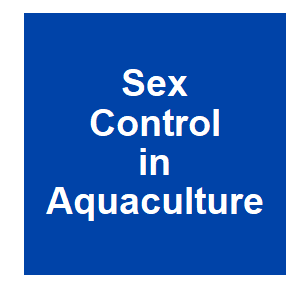
Keywords: temperature

|
Modeling shows emerging mosquito control approach might be largely resistant to warming temperaturesB. Yirka, Phys Org, 2023.
A team of epidemiologists and engineers at the University of California, working with a colleague from QIMR Berghofer Medical Research Institute, in Australia, has found via modeling that the use of the Wolbachia approach to slowing the spread of mosquito-borne diseases (MBDs) is ... Keywords: coho salmon, differentiation, fish, genetic, genetic biocontrol, growth, manipulation, model, rainbow-trout, ratio, temperature, Trojan-Y Chromosome, trout oncorhynchus-mykiss |

|
Scientists are releasing disease-resistant mosquitoes. But heat waves could kill them.C. Harvey, Politico, 2023.
A new study, published Thursday in the journal Nature Climate Change, suggests that the disease-quashing bugs will likely survive for at least the next couple of decades. Their fate is less certain further into the future. The study focuses on a special insect-borne bacterium ... Keywords: coho salmon, differentiation, fish, genetic, genetic biocontrol, growth, manipulation, model, rainbow-trout, ratio, temperature, Trojan-Y Chromosome, trout oncorhynchus-mykiss |

|
wMel replacement of dengue-competent mosquitoes is robust to near-term changeV. N. Vásquez, L. M. Kueppers, G. Rašić and J. M. Marshall, Nature Climate Change, 13:848-855. 2023.
Rising temperatures are impacting the range and prevalence of mosquito-borne diseases. A promising biocontrol technology replaces wild mosquitoes with those carrying the virus-blocking Wolbachia bacterium. Because the most widely used strain, wMel, is adversely affected by heat ... Keywords: coho salmon, differentiation, fish, genetic, genetic biocontrol, growth, manipulation, model, rainbow-trout, ratio, temperature, Trojan-Y Chromosome, trout oncorhynchus-mykiss |

|
Susceptibility of Wolbachia mosquito control to temperature shiftsE. P. Caragata, Nature Climate Change, 13:767-768. 2023.
Vásquez and colleagues consider the potential impacts of increasing and variable temperatures on Wolbachia-based population-replacement interventions. Previous laboratory experiments have highlighted the temperature-sensitive nature of Wolbachia, with high average daily ... Keywords: coho salmon, differentiation, fish, genetic, genetic biocontrol, growth, manipulation, model, rainbow-trout, ratio, temperature, Trojan-Y Chromosome, trout oncorhynchus-mykiss |

|
Wolbachia-Conferred Antiviral Protection Is Determined by Developmental TemperatureE. Chrostek, N. Martins, M. S. Marialva and L. Teixeira, mBio, e0292320. 2021.
Overall, we show that Wolbachia-conferred antiviral protection is temperature dependent, being present or absent depending on the environmental conditions. This interaction likely impacts Wolbachia-host interactions in nature and, as a result, frequencies of host and symbionts in ... Keywords: coho salmon, differentiation, fish, genetic, genetic biocontrol, growth, manipulation, model, rainbow-trout, ratio, temperature, Trojan-Y Chromosome, trout oncorhynchus-mykiss |

|
Population Consequences of Releasing Sex-Reversed Fish: Applications and ConcernsC. Wederkind, Sex Control in Aquaculture, Chp 8:179-188. 2018.
Sex differentiation is generally more labile in gonochoristic fish than it is, for example, in birds and mammals. Environmentally induced sex reversal is, therefore, often possible, and creates genotype‐phenotype mismatches that can be useful in population management. ... Keywords: coho salmon, differentiation, fish, genetic, genetic biocontrol, growth, manipulation, model, rainbow-trout, ratio, temperature, Trojan-Y Chromosome, trout oncorhynchus-mykiss |

Contact
David O’Brochta
Foundation for the
National Institutes of Health
geneconvenevi@fnih.org
RSS

